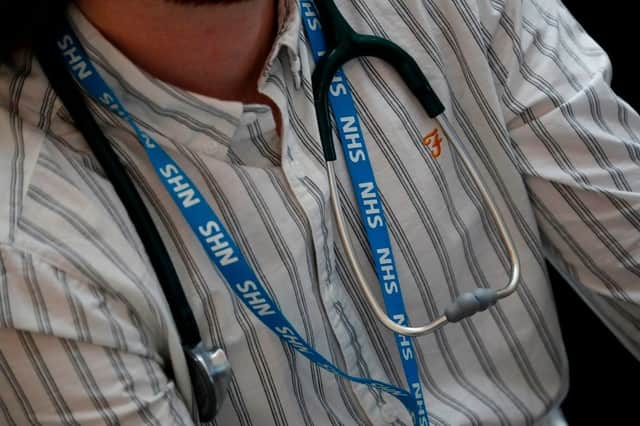Doctors told to 'discourage face-to-face appointments' and screen patients online first


Doctors have been advised to discourage face to face patient appointments in order to promote the use of virtual consultations.
New guidance for the NHS states that practices are to “increase significantly the use of online consultations, as part of embedding total triage”.
Advertisement
Hide AdAdvertisement
Hide AdAccording to The Telegraph, guidance issued by NHS England and seen by the newspaper says that when a patient calls, they should be encouraged to go online.
Doctors are instructed to “avoid directly booking patients who telephone the practice into an appointment” in order to prevent “disincentivising use of the online system”.
While practices may determine some “agreed exceptions”, in general, patients should be discouraged from finding ways around the system, the advice suggests.
Doctors and patients ‘need to be in the same room’
The guidance makes clear that anyone deemed by a doctor to need a face to face appointment should still get one, but states that around a third of all patients’ requests are able to be dealt with using online messaging.
Advertisement
Hide AdAdvertisement
Hide AdProfessor Martin Marshall, Chairman of the Royal College said that the Royal College was “pushing back” against the idea, in fear of risking missing diagnoses.
He said: “Once we get out of the pandemic and things return to a more normal way of living and working, we don’t want to see general practice become a totally, or even mostly, remote service.
“A lot of what we do is to build up a trusting relationship - and to do that you need to be in the same room so you can pick up the ‘soft signs’, such as anxiety.”
‘New methods close the door to patients’
Previously, the Patients' Association issued a warning stating that new ways of arranging GP appointments too often “closed the door” for patients.
Advertisement
Hide AdAdvertisement
Hide AdIts report said: “It is increasingly clear that many patients have found the new methods for arranging appointments do not work for them.
“GPs are the front door to the NHS, and patients are increasingly perceiving that the door is closed to them.”
£160 million in NHS England funding
Funding of £160 million has been announced by NHS England to aid the health service’s recovery after the pandemic. Virtual wards, 3D eye scanners and at-home antibiotic kits are all among the new initiatives to be trialled as part of the effort to tackle long waiting lists.
Figures from April revealed that the number of people in England waiting to begin hospital treatment had risen to a new record, with a total of 4.7 million people waiting to start their treatment at the end of February.
Advertisement
Hide AdAdvertisement
Hide AdThis is the highest figure since records began in August 2007.
Research from the Institute for Fiscal Studies, Harvard University and Imperial College London showed there were 2.9 million fewer planned admissions, 1.2 million fewer non-Covid-related emergency inpatient admissions and 17.1 million fewer outpatient appointments between March and December 2020, compared with the same period in 2019.
‘Find new ways to tackle waiting lists’
Amanda Pritchard, NHS chief operating officer, said: “With Covid cases in hospitals now significantly reducing thanks to the extraordinary success of the NHS vaccination programme, our focus is now on rapidly recovering routine services.
“Early figures show local teams are already well ahead of schedule, but we want to go further, faster, which is why we are investing £160 million to find new ways to tackle waiting lists.
Advertisement
Hide AdAdvertisement
Hide Ad“The additional support announced today will help us create a blueprint for continuing that progress over summer and beyond, in a way that doesn’t heap extra pressure on staff, so that as many people as possible benefit from the world-class care the NHS provides.”
‘The importance of treatment’
Rachel Power, chief executive of the Patients Association, said lengthy waiting times have been a “worry” for patients and welcomed the initiative.
She said: “The importance of treatment being timely, to ensure the best possible outcomes, is well recognised.
“Effective communication with patients at this critical juncture is also essential, and we have been pleased to work with NHS England on developing principles for effective communication with patients about their elective treatment.”
A version of this article originally appeared on our sister site NationalWorld